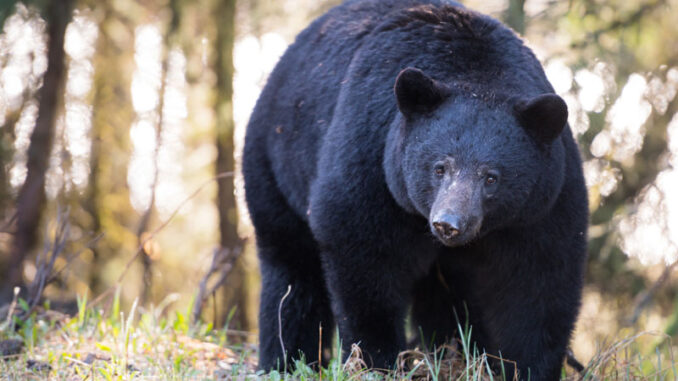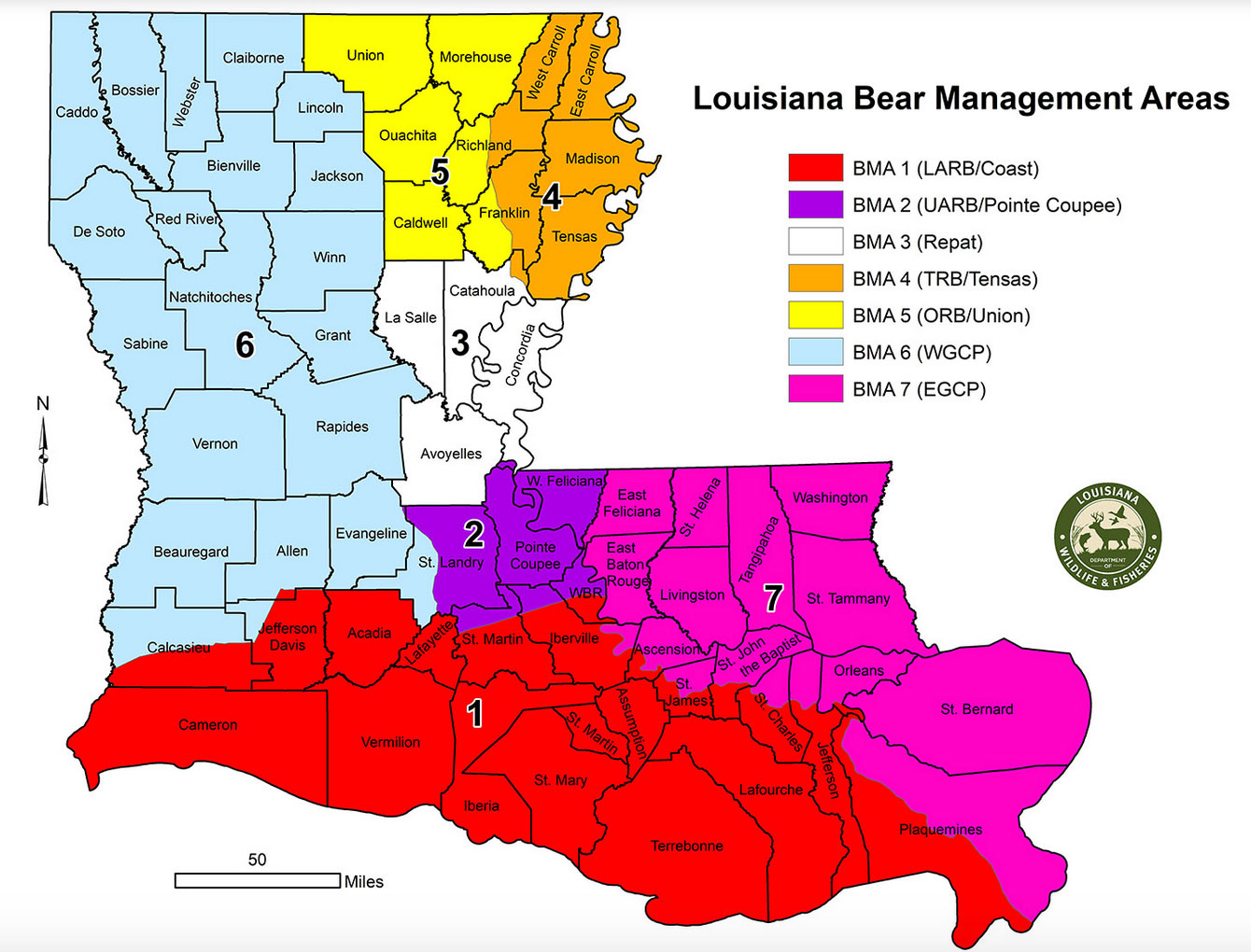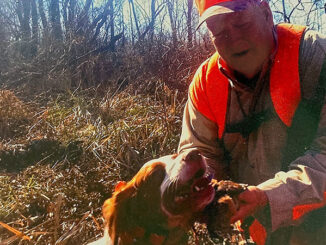
The Louisiana Wildlife and Fisheries Commission (LWFC) adopted an amended Notice of Intent to hold a Louisiana black bear hunting season in December of 2024 in northeast Louisiana.
The action came during the commission’s April meeting on Tuesday (April 9) in Baton Rouge. The action authorizes the Secretary of the Louisiana Department of Wildlife and Fisheries (LDWF) to take all necessary steps to direct and prepare a report to the legislative oversight committee and file the final rule.
In a very brief news release following the meeting, the LDWF said the hunt will be by lottery and will be administered by the department.

In spite of Louisiana having seven recognized regions with bear populations, the initial season will be confined to Bear Management Area 4, which includes Tensas, Madison, East Carroll and West Carroll parishes and portions of Richland, Franklin and Catahoula parishes.
The season would begin on Dec. 7, 2024 and run through Dec. 22, 2024.
Hunts will be restricted to properly licensed Louisiana residents by lottery. All successful applicants for the hunt will be required to attend a LDWF bear hunter training course.
No specific number
No other information was given by the LDWF and details will be released at a later date. In previous communications, the opening season was to be limited to only 10 bears statewide. While that met with disdain from many hunters, landowners and others who suffer damage from high populations of bears, there is no indication that number will be raised at this time.
The Notice of Intent does specify that “bear hunting is restricted to bona fide resident hunters who are properly licensed, hunter safety certified, and possess a valid bear hunting permit issued by the department. The number of bear harvest permits issued will be determined based on Bear Area specific population estimates and vital rate data acquired at regular intervals. The number of bear harvest permits issued at any given time during the season shall not allow the harvest to exceed the number of bears of either sex in any Bear Area that would compromise the long-term sustainability of the Bear Area population.
According to the LDWF website, the Louisiana black bear was listed as threatened under the Endangered Species Act in 1992. Years of overexploitation from bear hunting in the 19th and early 20th centuries and widespread deforestation from manufacturing of wood products and clearing lands for agriculture drastically reduced the population and distribution of the Louisiana black bear. Thanks to the collaborative efforts of multiple stakeholders to monitor black bear population numbers, restore black bear habitat, and protect the subspecies for the long term, the Louisiana black bear has now recovered and was removed from the list in 2016.
Symbol of success
The Louisiana black bear’s recovery is a symbol of effective wildlife management approaches and the value of protection under the Endangered Species Act.
After years of legal wrangling by environmental groups, a federal judge earlier this year upheld the decision to remove the Louisiana black bear’s endangered species status.
District Judge Brian Jackson ruled Monday that the U.S. Fish and Wildlife Service was justified in 2016 in revoking the bear’s threatened status under the Endangered Species Act. The decision was challenged by the environmental group Atchafalaya Basinkeeper and has been delayed in the courts.
Jackson disagreed, citing the service’s lengthy de-listing process and studies indicating the bear’s population is small but growing in some parts of the state.
No firm numbers of the total bear population in Louisiana are available, despite years of study. Scientific estimates range between 600 and 1,000, but many believe those are conservative estimates. Female bears raise two to three cubs every year and despite that, the official numbers have not grown to reflect that annually. Bears have no natural predators and can live more than 20 years in suitable wild habitat.
In opening the door legally for the season, Jackson wrote, “The service engaged in a lengthy analysis of multiple levels of state and federal protections that will serve to protect the Louisiana black bear into the future.”
Richard Kennedy of the Safari Club International (SCI), which has been involved with research and scientific fact-finding and helped defend the de-listing, has publicly stated that his organization was pleased with the judge’s decision, which allowed the proposed bear season to move forward.
“The science supports the delisting and the court’s confirmation that the Louisiana black bear population has recovered and is healthy and sustainable,” said Richard Kennedy, president of the club’s Acadiana chapter.
SCI has indicated to its members that the fight is not completely over, and SCI strongly encourages its members in Louisiana and interested supporters to stay engaged on this issue and support science-based wildlife management.
To see the amended and complete NOI, go to https://www.wlf.louisiana.gov/resources/category/commission-action-items.


